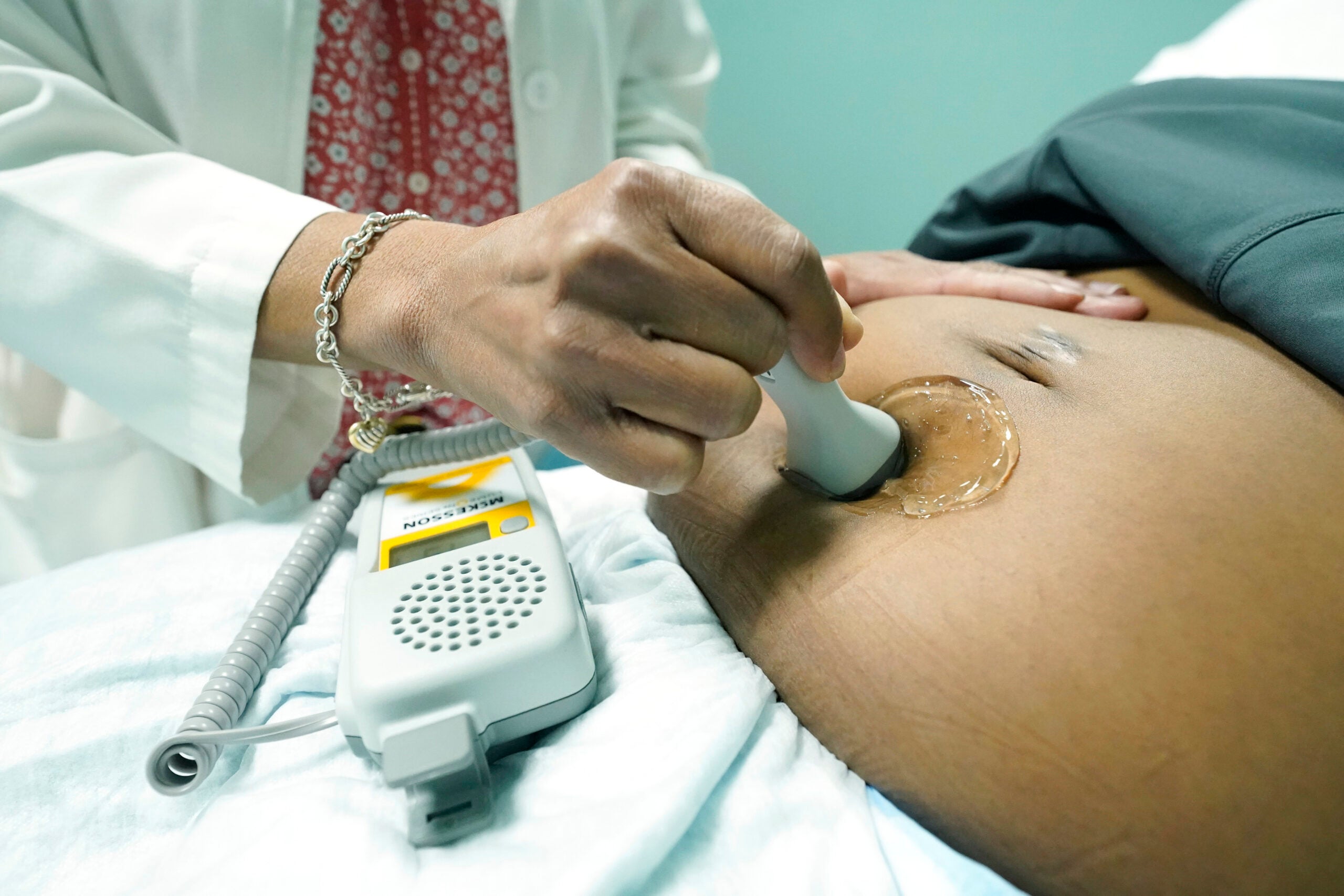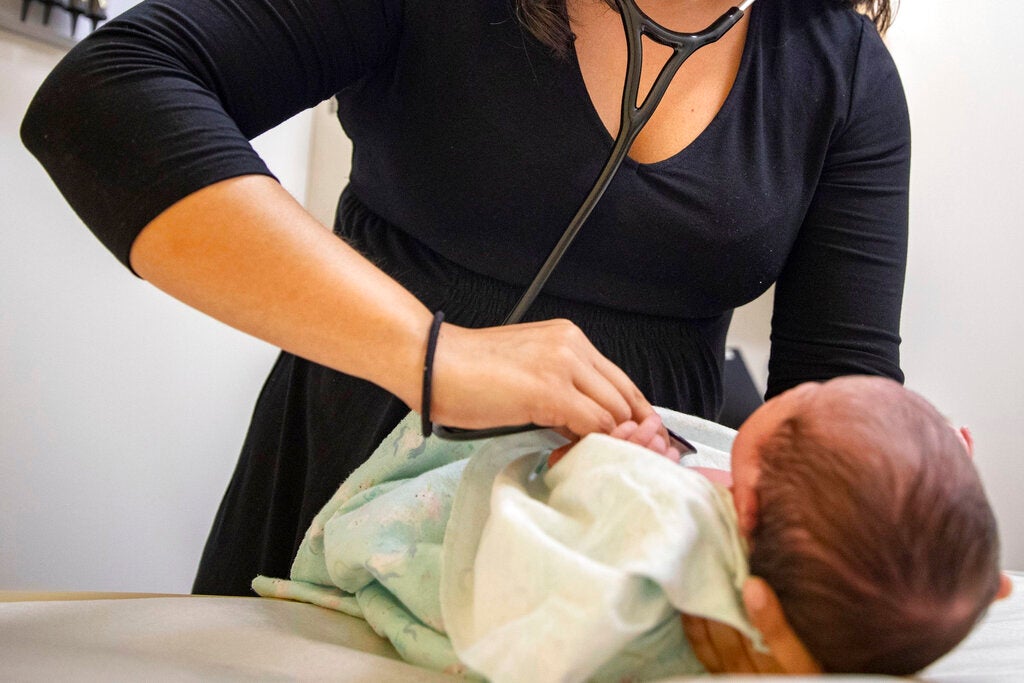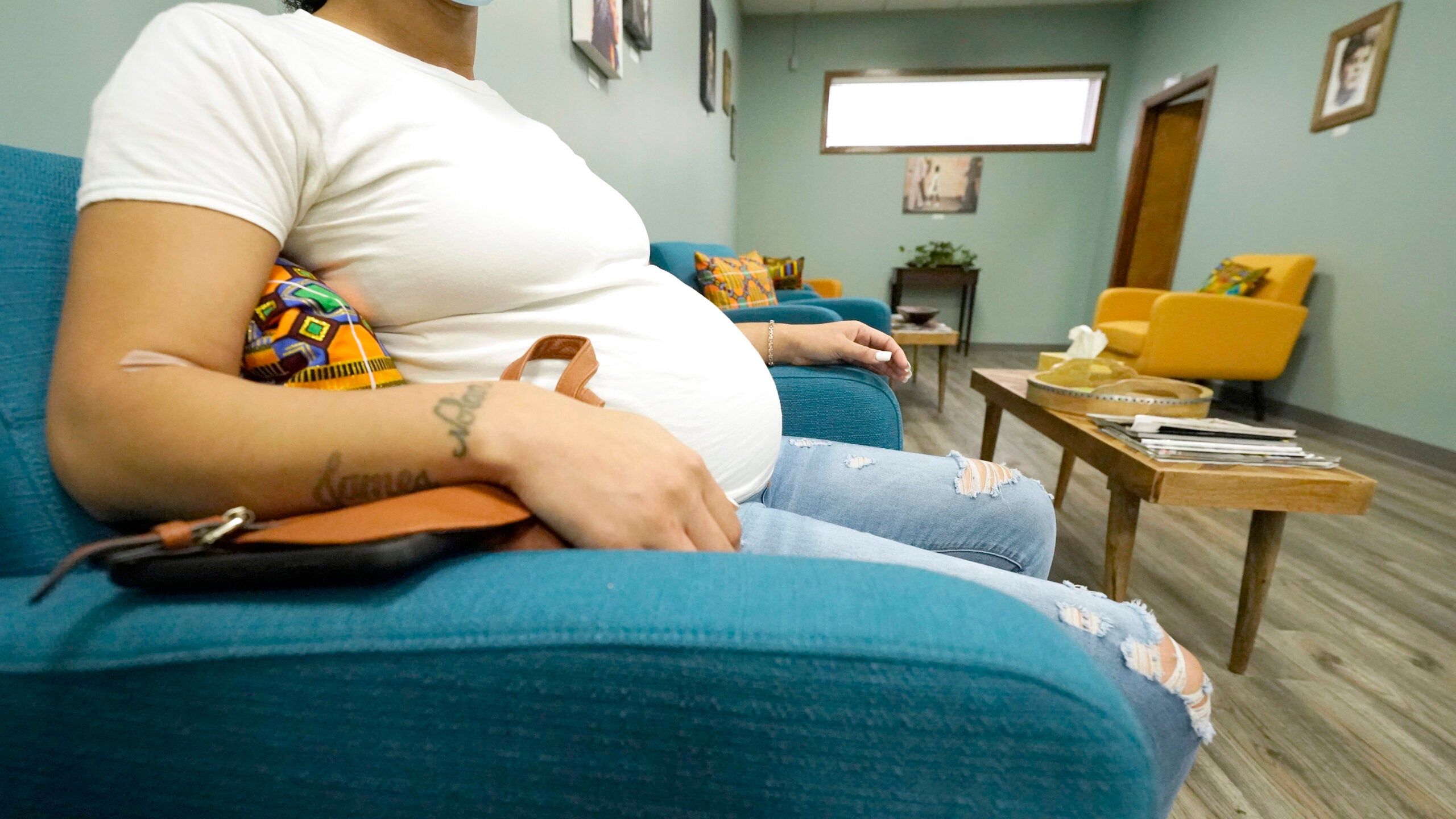Wisconsin doctors have been scrambling to understand and interpret the state’s 1849 abortion ban following the U.S. Supreme Court’s decision to overturn Roe v. Wade. But the decision is also complicating medical resident training.
Officials at the Medical College of Wisconsin are making plans to train current OB-GYN residents across state lines in Illinois, where abortion remains legal. The Milwaukee Journal Sentinel reported the college and RUSH University Medical Center in Chicago are currently working on an agreement to ensure residents get proper training.
Administrators at the University of Wisconsin-Madison are also coming up with ways to solve the current training problem, but they’re also beginning to worry about future recruitment.
Stay informed on the latest news
Sign up for WPR’s email newsletter.
Dr. Laura Jacques, an assistant professor and the director of medical student education at UW-Madison’s Department of Obstetrics and Gynecology, said the repercussions could be felt for years.
“I’m worried that we’re going to have a challenging time recruiting the best residents to our program because of these concerns, and not just for obstetrics and gynecology, but for all types of medicine,” she said.
Jacques said she’s hearing concerns from her medical students and residents, all of whom “recognize the importance of the skill set that’s learned during clinical abortion training.”
The Accreditation Council for Graduate Medical Education, or ACGME, sets the standards for graduate medical education in the United States. For a program to be accredited, residents must receive training in a swath of disciplines — including reproductive care.
Dr. John Combes, chief communications and public policy officer for ACGME, said residents must learn hands-on skills for treating patients experiencing miscarriage and early pregnancy loss.
“We have always maintained that this procedure was really foundational to the practice of reproductive health by an obstetrician and gynecologist,” Combes said. The procedure, dilation and curettage, is used to remove tissue from the inside of a patient’s uterus during a miscarriage or abortion.
“It’s the same technique that’s used basically for a woman that’s had a retained embryo or fetus after a spontaneous miscarriage,” he said, adding that without it, pregnant people “could develop a severe infection or bleeding.”
Extensive training also provides residents with confidence and skill — something Jacques said is especially important in life-threatening situations. She’s already noticed this year’s residents are falling behind.
“At this point in the year, they’re usually much further along in their learning curve than they are now. So we are already taking steps to try to get them back up to speed,” Jacques said. “But it’s been an immediate finding — we’ve immediately realized the impact that this law has had on training our residents.”
ACGME has “reaffirmed the requirements” for residents to get training in abortion care, and officials at UW-Madison are “exploring all avenues” to make sure that happens, Jacques said.
Other program leaders are also coordinating plans to prepare students and maintain accreditation. A spokesperson for the Aurora Sinai Medical Center in Milwaukee confirmed it’s working with the state’s residency programs through the Ryan Program, a national initiative to support abortion clinical training programs.
“We’re committed to ensuring that residents get the obstetrics and gynecology experience needed to provide patients with safe, quality care,” the spokesperson said in a statement. “To meet accreditation requirements and enhance family planning training, the program offers a mix of lectures and simulations. Additionally, we are now coordinating out-of-state rotations — keeping resident wellness top of mind.”
Still, program leaders are worried about providing support to residents traveling out of state to receive training. Asking students to travel may also pose a challenge for residents with families, Combes said.
Dr. Sloane York is an associate professor of obstetrics and gynecology and the residency program director at RUSH University Medical Center in Chicago. She said Illinois is seeing a surge in out-of-state patients looking for abortion care. More patients lead to more training opportunities, but it also means a busier hospital.
“Having that influx into our state, and then looking at how do we even accommodate trainees when, you know, a clinic day is that much busier, a day in the operating room is that much busier, it’s even harder to actually train people, even if you have the increased capacity,” she said.
York said she wouldn’t be surprised if residents opt to practice in states where abortion remains legal, regardless of where they’re trained.
It’s a concern Jacques said could hurt Wisconsin’s ability to recruit and retain talented OB-GYNs.
“I think physicians are hard-pressed to come to a state to work when a portion of their job is criminalized,” she said
Wisconsin Public Radio, © Copyright 2025, Board of Regents of the University of Wisconsin System and Wisconsin Educational Communications Board.





